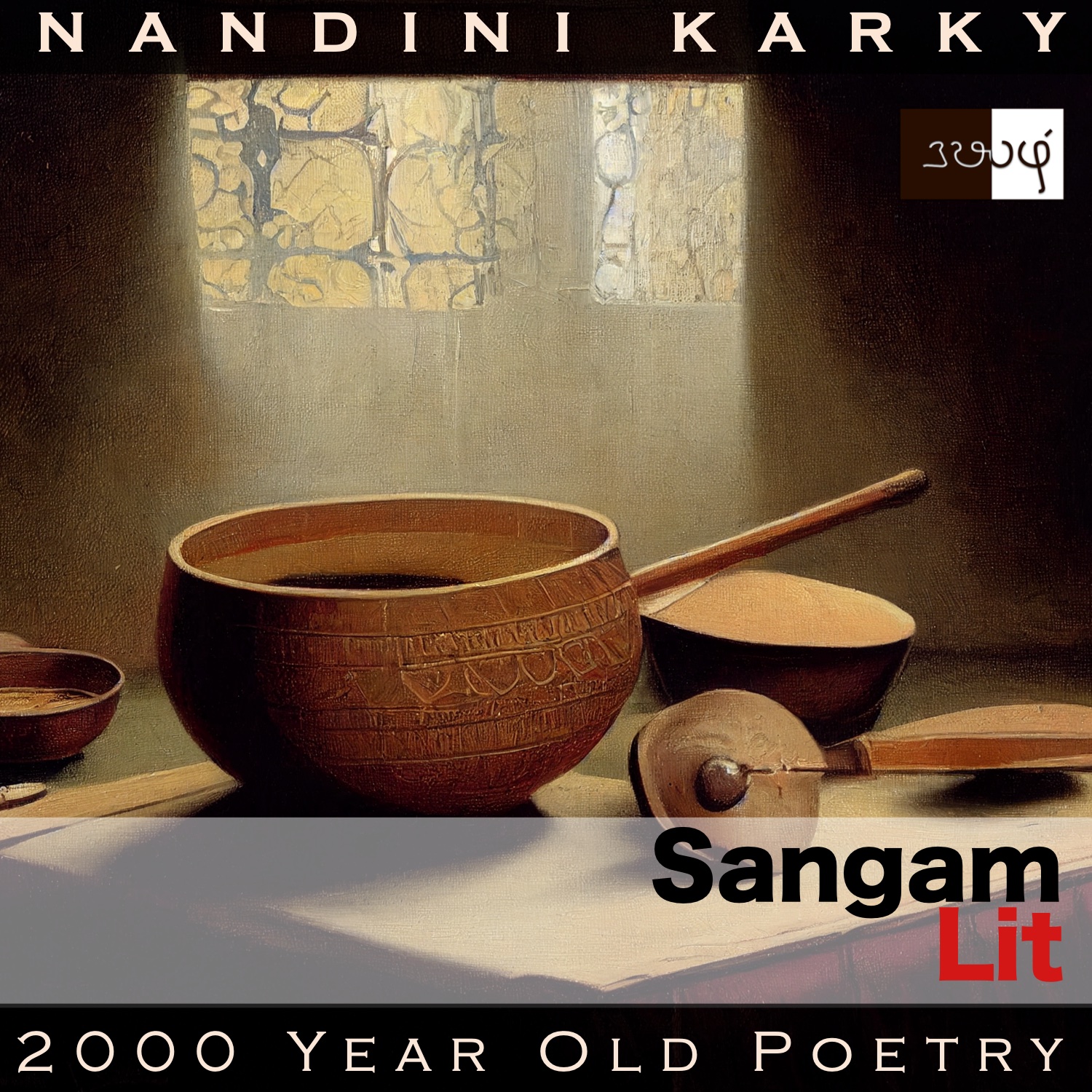Podcast: Play in new window | Download
Subscribe: Apple Podcasts | Spotify | Amazon Music | Android | iHeartRadio | TuneIn | RSS | More
In this episode, we learn of the impoverished life of a poet, as depicted in Sangam Literary work, Puranaanooru 64, penned about the Pandya King Palyaakasalai Muthukudumi Peruvazhuthi by the poet Nedumpalliyathanaar. The verse is situated in the category of ‘Paadaan Thinai’ or ‘King’s praise’ and directs a dancing maiden to avail the generosity of this Pandya king.

நல் யாழ், ஆகுளி, பதலையொடு சுருக்கி,
செல்லாமோதில் சில் வளை விறலி!
களிற்றுக் கணம் பொருத கண் அகன் பறந்தலை,
விசும்பு ஆடு எருவை பசுந் தடி தடுப்ப,
பகைப் புலம் மரீஇய தகைப் பெருஞ் சிறப்பின்
குடுமிக் கோமாற் கண்டு,
நெடு நீர்ப் புற்கை நீத்தனம் வரற்கே?
A short song that depicts the greatness of this much sung about Sangam king from the Pandya dynasty. The poet’s words can be translated as follows:
“Taking the fine lute and tying ‘akuli’ drums and ‘pathalai’ drums together, shall we go, O dancing maiden – you, who wears but a few bangles? In that wide battlefield, where huge elephants war against each other, where roving vultures are stopped by fresh flesh in mid air, the wealthy and renowned King Kudumi resides on enemy ground. Shall we go meet him to put an end to this life of eating sparse gruel fused with a lot of water?”
Let’s delve into the details here! The poet is seen talking to a dancing maiden. There seems to have been frequent collaboration between these two artists in the Sangam era. Remember how in another poem, a poet talks about the time he was walking in the drylands along with a dancing maiden! Here, the poet is instructing the lady to pack all their musical instruments, which include a lute, for the strings, and two types of drums, the ‘akuli’ and ‘pathalai’, for percussion, so that they can leave. Leave where? To answer that question, the poet paints the scene of elephants fighting in some wide space and vultures stopping in their tracks, blinded and seduced by all the flesh lying about. This happens to be the enemy land where king Kudumi is engaged in battle. Why exactly does the poet want to go to this gruesome battlefield along with the dancing maiden? It’s only because that visit to earn the graces of that king would end their life of poverty, which is filled with days of eating nothing but watered-down gruel!
Sounds like a case of desperate situations needing desperate measures! This account is also an indicator of the imbalance of wealth in the ancient world. The monarchs were the haves and poets and artists seemed to be the have-nots, depending on the wealthy rulers for their basic sustenance. Indeed, that frequently quoted phrase ‘starving artist’ seems to be literally sketched here with that bowl of watery food!




Share your thoughts...